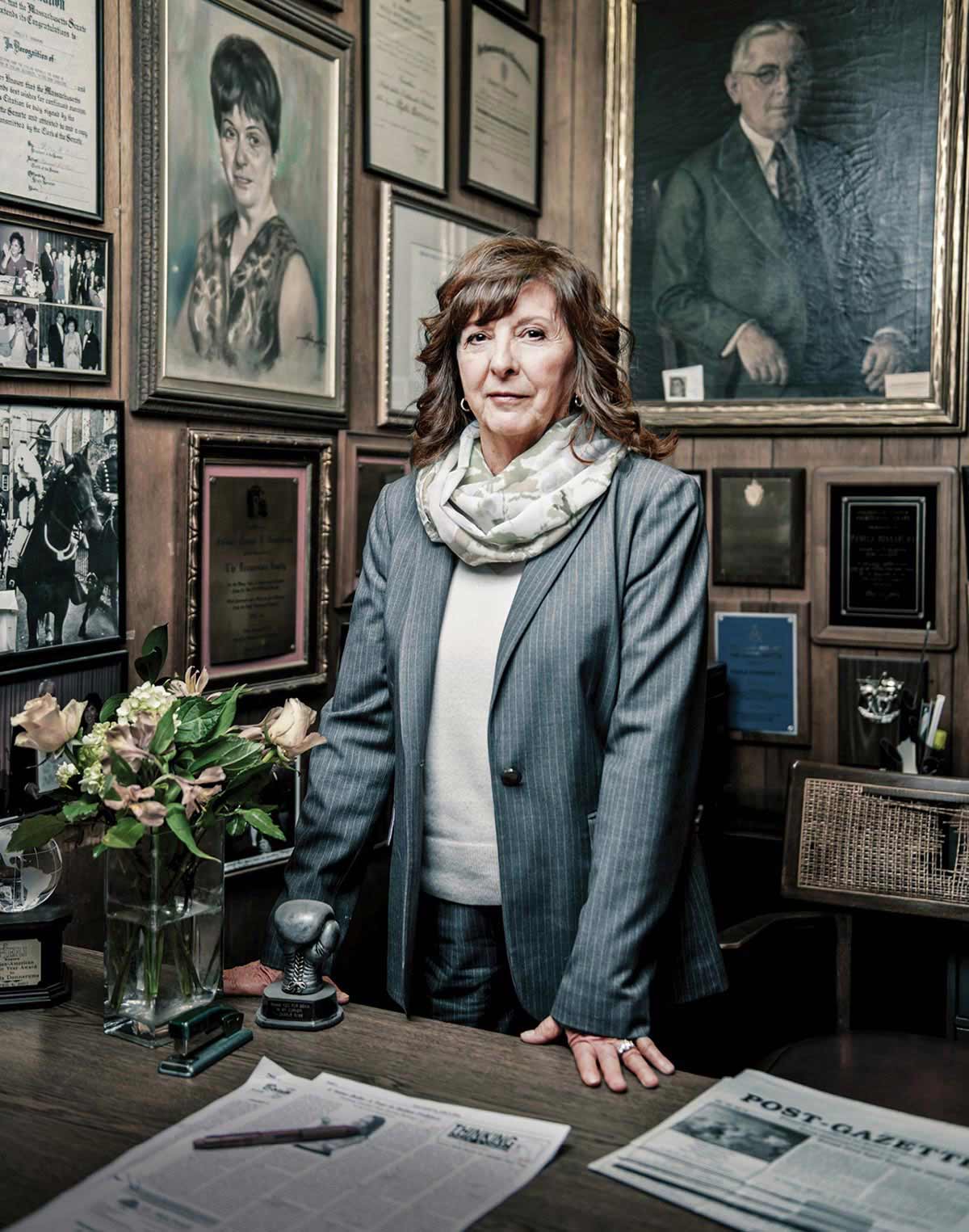Pamela Donnaruma on the Post-Gazette’s Uncertain Future

Post-Gazette publisher and editor Pamela Donnaruma doesn’t know what the future holds for her North End newspaper. / Photograph by Webb Chappell
After Pamela Donnaruma learned last spring that the Newseum, in Washington, DC, was going to commemorate her family’s North End newspaper, the Post-Gazette, she immediately planned a trip with two writers to see the exhibit. When they finally laid eyes on the publication, displayed on the museum’s wall as one of our country’s oldest ethnic newspapers still in existence, they couldn’t hold back the tears.
“What a thrill, what an exciting thing,” Donnaruma says, before a sad note creeps into her voice. “But will the next generation want to do this? I don’t think anyone in my family will want to do it.”
Donnaruma’s Italian-immigrant grandfather, James, founded La Gazzetta del Massachusetts in 1896, and her parents, Caesar and Phyllis, published it until she took over in 1990. The family-owned paper, which hasn’t skipped an issue in 120 years, is still the weekly voice of Boston’s Italian-American community. For decades, running it has been a labor of love. Donnaruma does it partly because the big papers won’t run the kinds of stories hers does—ones that focus on her community and emphasize positive news. Her father had a knack for using the paper to help Italian businesses succeed in a town that was rife with discrimination at the time. In fact, the last time Donnaruma stopped by Piantedosi Baking, she ran into the owner. “He said to me, ‘We still have it hanging on the wall—that story your parents did on my father,’” she says. “Do you know how good that makes [me] feel when you see how big [Piantedosi] has grown?”
Today, the Post-Gazette offices are a living history of Boston’s Italian-American heritage and the sweat equity the family put into becoming the voice of a neighborhood. But Donnaruma doesn’t have any children to follow in her footsteps, and is unsure there’s anyone—related or not—who will take over once she’s ready to retire. “If you ever came in here, you’d look at these walls…. There are just files and piles of pictures and things,” she says. “I’m fortunate that I remember a lot of it, whereas the next generation won’t. But I always [hope] somebody’s gonna walk through that door and want to be part of this place.”

